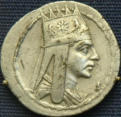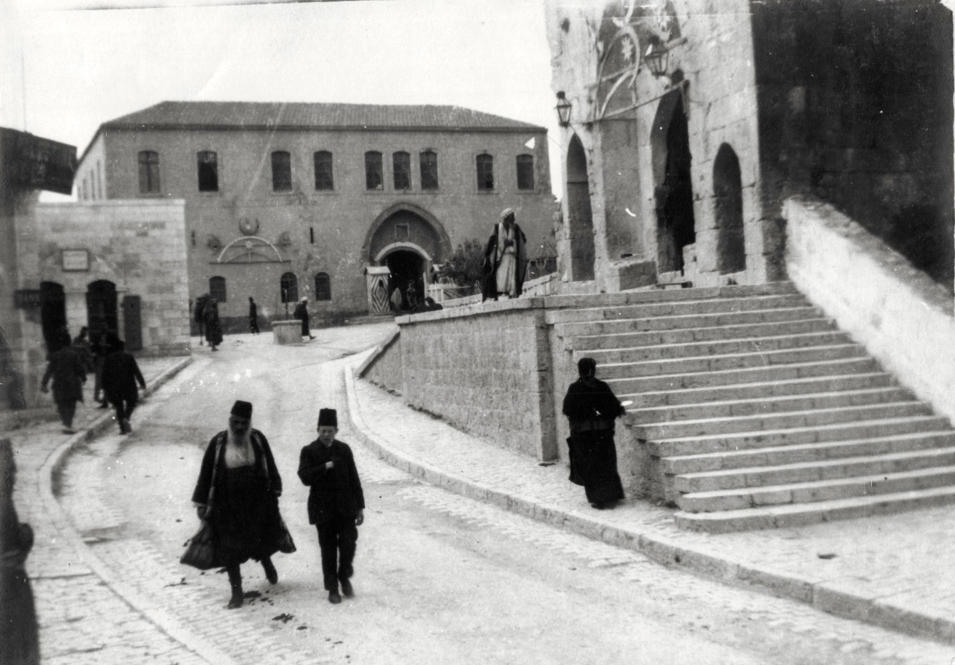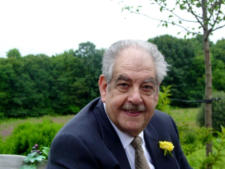




Armenian Jerusalem


The way to the Armenian compound
Katch
Julian
Adrian
was
born
on
April
28,
1933
in
the
Armenian
Quarter
of
the
Old
City
of
Jerusalem,
when
I
was
eight.
His
given
name
was
â
˜Khatchadour”,
which
in
Armenian
means
’cross-given”
or
’cross-giver,”
but
was
and
is
popularly
called
“Khatcho”:
by
relatives
and
Armenian
friends.
Our
parents
were
Apraham
Kevorkian
and
Elizabeth
Sahakian,
and
our
grandparents were Khatchadour Nersessian and Kevork Sahakian respectively.
The
first
time
I
saw
Katch,
as
a
cute
little
baby,
lying
in
a
cot
in
an
alcove,
in
the
living
room-bedroom
of
our
parents’
house.
He
was
my
second
brother
since
my
first
brother,
who
was given the same name as Katch, died of meningitis at the age of 5. I was then 8.
Much
later,
during
the
Six
Day
1948,
that
room
was
largely
destroyed
by
a
bomb.
When
I
went
back
to
Jerusalem
in
the
summer
of
1965
I
found
some
of
his
school
books
together
with family photographs, scattered on the ruined room’s floor.
William
Wordsworth’s
famous
line,
’The
child
is
father
to
the
man,”
well
describes
the
personality
he
developed
as
he
was
growing
up
as
a
tall,
handsome
youth;
including
his
easy
sociability
and
friendliness;
his
love
of
an
active
life,
including
sports.
Later
in
life
he
developed a wry, teasing sense of humor and an amazing rapport even with total strangers.
Katch
had
his
first
schooling
at
the
St.Tarkmanchats
(’The
Translators”)
parochial
elementary
school
founded
by
the
Jerusalem
Armenian
Patriarchate
in
1929.
During
the
six
years
of
elementary
school
he
studied
English
and
Arabic
in
addition
to
classical
and
modern
Armenian,
along
with
the
usual
elementary
classes
in
science,
math
and
history.
As
far
as
I
recall, he did quite well in all his classes.
After
graduation
from
elementary
school
Katch
continued
his
studies
at
the
Jerusalem
Terra
Sancta
College.
But
before
he
was
able
to
complete
his
secondary
education,
his
studies
were
cut
short
by
the
1948
Arab-Israeli
War,
which
first
forced
our
parents
and
him
to
take
refuge,
with
the
rest
of
the
Armenian
community
outside
the
monastery
of
St.
James,
where they lived for two weeks, sleeping on the altar of the Cathedral of St. James.
Soon
after
that
they
fled
at
night
to
Amman,
Jordan.
There
he
continued
his
studies--
but
once
again,
one
year
before
graduation,
he
had
to
quit
school,
this
time
due
to
the
family’s
financial
straits.
But
he
determinedly
continued
his
studies
on
his
own,
preparing
for
the
London University General Entrance Examination (GCE) and remarkably passed it.
In
1951,
a
year
after
my
wife’s
and
my
return
from
a
year’s
teaching
in
Cyprus,
he
and
our
parents
came
to
live
with
us
in
Beirut.
He
was
then
eighteen.
From
that
time
until
1956,
when
at
the
height
of
the
Suez
Crisis
he
migrated
to
the
United
States
on
a
non-quota
Palestinian
refugee
visa,
he
worked
in
the
exchange
section
of
Intra
Bank
of
the
Middle
East.
Gradually
he
became
more
introspective,
silently
dreaming
about
his
future,
aspiring
to
become a writer.
The
unexciting
work
and
life
in
Beirut
at
the
time
offered
little
to
an
ambitious
young
man
like
Katch.
Armed
with
letters
of
recommendation
from
the
bank
President,
he
therefore
sought
to
carve
a
future
for
himself
in
the
United
States,
and,
as
I
said,
migrated
to
it;
where,
fortuitously,
he
was
hired
by
the
Bank
of
America
in
Manhattan.
Not
satisfied
with
his
starter’s
position
in
the
bank,
he
enrolled
in
night
classes
at
Pace
College,
and
after
years
of
high
work,
graduated
not
with
one
but
two
Masters’
Degrees:
in
Finance
and
in
Banking.
Meanwhile
he
steadily
rose
in
the
ranks
and--
after
some
time
after
returning
from
military
service
in
the
US
army
in
Europe,
in
Verdun
Franceâ,he
was
given
the
position
of
Assistant Vice President at the Bank.
During
his
army
service,
Katch
likewise
distinguished
himself,
receiving
a
medal
for
his
expert
marksmanship,
and,
more
importantly,
by
using
his
professional
skills
to
create
a
more
efficient
accounting
system
than
was
in
use
by
the
army
at
the
time,
saving
it
up
to
a
hundred
thousand
US
dollars.
In
addition,
he
accompanied
some
of
his
superior
officers
on
their
inspection
tours
to
various
army
centers
in
France
and,
I
think,
Germany.
But
most
importantly,
he
was
instrumental
in
saving
a
fellow
recruit’s
life
during
military
exercises,
by
preventing
a
grenade
from
killing
him.
(In
fact,
his
exceptional
physical
courage
was
evident
even
when
he
was
nine
or
ten,
when
he
risked
his
life
trying
to
save
his
brother
from
drowning.)
After
some
years
of
serving
as
a
Senior
Vice
President
at
the
Bank
of
America,
he
joined
Allied
Banks,
a
consortium
of
sixteen
banks
as
Senior
Vice
President.
Finally,
some
years
later
he
moved
to
Bahrain,
Manama,
where
he
built
a
new
bank,
the
Middle
East
Bank
of
Bahrain,
from
the
foundations
up.
During
the
ten
years
as
the
bank’s
president,
he
traveled
extensively to Europe as a Board Member of a number of major financial institutions.
It
should
be
added
that
during
his
work
in
Bahrain,
he
served
as
the
head
of
the
Republican
Party
under
President
Reagan
and
after.
In
recognition
of
his
efforts
a
plaque
in
his
name
with
together
with
a
small
American
flag
was
placed
in
the
rotunda
of
the
US
Congress building.
To
the
very
end
Katch’s
deep
love
and
caring
for
his
family
and
relatives,
and
his
abiding
loyalty
to
his
old
friends,
never
waned.
To
his
many
cousins
he
was
‘like
a
brother”
as
one
cousin
told
me
with
emotion
when
offering
his
condolences
for
Katch’s
passing.
And
Katch’s
profound
sadness
and
pain
for
all
the
hardships
and
deprivations
his
parents
suffered
during
their lifetime, never left him.
Recently,
during
one
our
phone,
he
said
that
since
our
father
had
died
at
the
age
of
seventy
eight,
he
believed
or
thought
that
he
himself
would
not
live
much
longer.
That
thought
or
feeling
was
perhaps
due
to
his
poor
physical
condition.
It
may
have
been
a
premonition
that
the
end
was
near.
I
tried
to
reassure
him
that
father’s
age
when
he
died
had
nothing
to
do
with
the
length
of
his
lifeâ,or
mine,
since
I
already
was
well
past
eighty.
But
in
a
way
I
understood
his
worry
or
concern,
particularly
as
he
had
great
admiration
for
our
father,
no
doubt
because
he
was
a
self-made
man
who
too
had
triumphed
over
a
hard
early
life
and
determinedly,
also
achieved
a
considerable
material
and
social
status.
Indeed,
some
of
the
traits
he
inherited
from
our
father
were
quite
evident
in
Katch’s
own
life.
Like
father
he
was
physically
and
mentally
tough;
reiterating,
during
the
last
several
difficult
months,
that
he
was
a
‘soldier.”
It
is
not
sheer
coincidence
that
during
the
Great
War
our
father too, at a very young age, had also been a soldier.
























